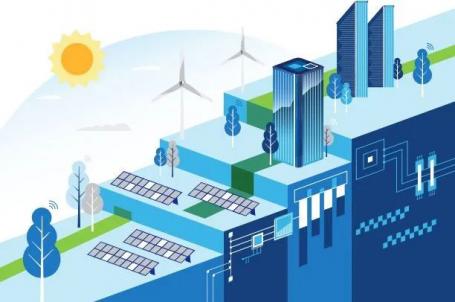
Making green the background color of the Belt and Road
China’s top economic planner and three ministries jointly issued a guidance on promoting the green development of the Belt and Road Initiative, encouraging businesses to increase investment and global cooperation in green infrastructure, investment, finance and EIA standards, among other fields.
The Guidance is the country’s most-recent move to follow up on the 2021 commitment to stop overseas financing of new coal-fired power plants, encouraging solar and wind manufacturers to go global, and companies to follow international standards in managing their overseas projects. The relevant key points are listed below:
Green development: the Guidance is intended to “further promote the Belt and Road Initiative (BRI)’s green development and make green color practically become the BRI’s background color”. With green development highlighted in the title of the Guidance, the word “green” has been mentioned 94 times in the text. The implementation of the BRI green development is laid out in terms of basic principles, goals, key areas of cooperation, overseas projects, and support and safeguard systems.
Renewable energy: The Guidance requires the strengthening of green energy cooperation. It encourages green clean energy cooperation, and global cooperation in green, low-carbon transition. It encourages solar and wind power enterprises, among others, to go global and build a number of green-energy best-practice projects. It calls for deepened cooperation in energy technology and equipment, focusing on joint research and training in high-efficiency and low-cost renewable energy power generation, among other fields.
Green finance: The Guidance requires the strengthening of cooperation in green finance. The Guidance requires, under the multilateral cooperation framework such as United Nations and the G20, to promote voluntary guidelines and best practices related to green investment, green finance, and capacity building. It urges to make good use of loans from international financial institutions and to leverage private green investment. It encourages financial institutions to implement the Green Investment Principles for the Belt and Road Initiative.
Green standards: The Guidance requires to regulate the environmental behavior of enterprises overseas. It urges to hold enterprises accountable for their environmental behavior overseas, and to provide guidance to enterprises on strictly abiding by host countries’ eco-environmental laws, regulations, standards and norms. It encourages enterprises to carry out environmental protection work according to international standards or higher standards of China.
Environmental impact assessment: The Guidance requires enterprises to promote the green environmental protection standards and best practices of infrastructure, to scout locations in a reasonable manner so as to reduce impact on various types of conservation zones and ecologically sensitive and fragile zones, to appropriately conduct environmental impact assessment, and to take eco-environmental protection measures during the construction and operation phases, continuously raising the level of green and low-carbon development in infrastructure operation, management and maintenance. The Guidance requires enterprises to raise awareness of environmental risks, strengthen environmental management of overseas projects, properly conduct pre-investment environmental impact assessment of overseas projects, identify and prevent environmental risks in a timely manner, and take effective eco-environmental measures.
According to the Guidance, the notion of green development will guide the work on jointly developing the BRI. It will be prioritized in key-area cooperation, platform support, capacity building, and publicity. It will be implemented throughout the pre-investment assessment, construction and operation. The Guidance will play a positive role in actively responding to climate change, maintaining the safety of the global eco-system, facilitating the high-quality development of the BRI, and creating the co-existence of man and nature.
